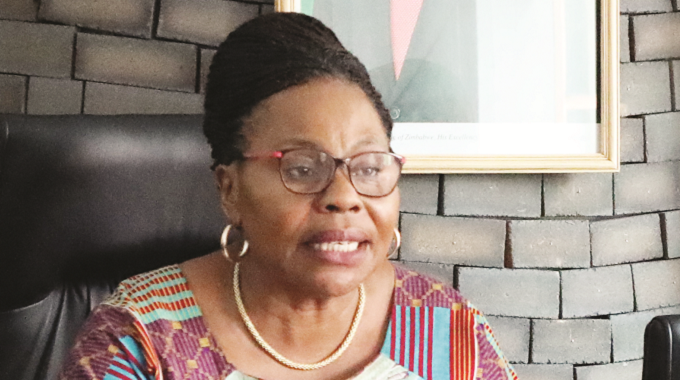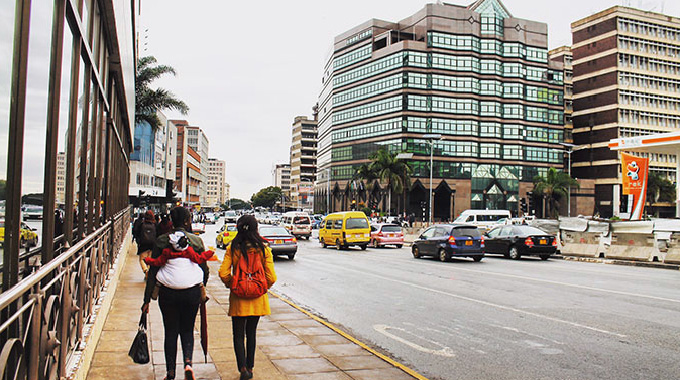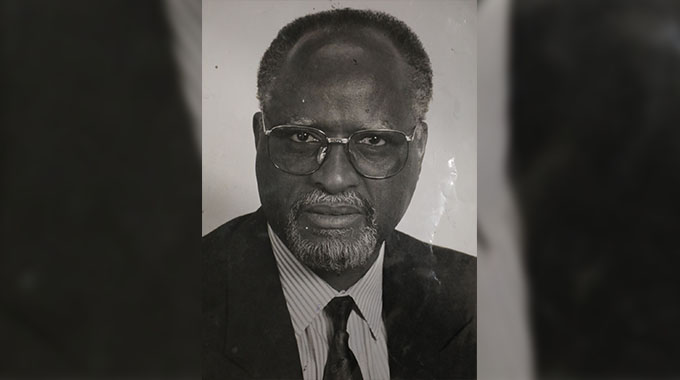Question and Answer with Hon Senator, Monica Mutsvangwa

Following the swearing in of the new Government in the Second Republic, there have been fresh calls on the new administration to repeal laws such as the Access to Information and Protection of Privacy Act to promote media freedom.
Gender Editor Ruth Butaumocho (RB) interviewed Minister of Information, Publicity and Broadcasting Services, Hon Senator Monica Mutsvangwa (MM) on a wide range of issues including digitisation, an upsurge of unregistered online content producers, revival of Ziana and the welfare of journalists.
RB: Your appointment comes at a time journalists are facing several operational challenges in Zimbabwe.
There have been concerns that sections of the Access to Information and Protection of Privacy Act (AIPPA) and the Public Order and Security Act (POSA) interfere with the work of journalists and should be repealed.
What measures will you take to address the shortcomings in the two laws?
MM: I am not new to the industry as I have been a Deputy Minister in this Ministry before.
What is very clear to the President and my Ministry is that it is our national responsibility to align our laws to our Constitution.
The Deputy Minister, Permanent Secretary and myself are engaging stakeholders in the industry and have taken on board their expressed sentiments.
We will work in the context of such. But one thing that we have to do is to ensure that every law is harmonised with the highest law of the land.
That is sacrosanct. At the top of such an effort will be AIPPA.
I will be visiting media organisations such as Zimpapers, Alpha media, ANZ and public and private broadcasting facilities in the country to continue doing our best to address their challenges. This is our industry together.
Coming directly to your question, I reinforce Government’s position that the new 2013 Constitution overrides any laws, their provisions and regulations.
Therefore any provisions in AIPPA that are contrary to the Constitution and in particular Section 61 and 62, are presently invalid.
Our thrust within the first 100 days of our work in the Ministry as far as AIPPA is concerned is to do the necessary work within Parliament to ensure that the law (i.e. AIPPA) and other media laws are not only fully aligned with the Constitution but also with the thrust of Government to rationalise Government institutions (departments and parastatals) with a view to curtailing the cost of providing public sector goods and services.
Furthermore, within the next 100 days, we will bring to finality the consultative work of the Information and Media Panel of Inquiry (IMPI) by taking positive recommendations contained therein and developing them into a media industry-wide policy document.
RB: The advent of information communication technology has resulted in an upsurge of online content creators, who are also disseminating information in equal measures with registered media houses, having a free pass and in some instances disseminating false information.
What measures will you put in place to regulate such operations?
MM: Indeed, information communication technologies have fast transformed the world into a global village.
They continue to dictate the pace of life in the developed and least developed countries.
We find smart phones in rural Zimbabwe where they are transforming the rural population’s mode of access to information, news and banking services.
Therefore, the impact of ICTs is positive and will live with us for posterity in as much as it exists to serve people by uplifting their livelihoods.
Traditional media is today facing serious non-professional individuals that post content on the world-wide-web’s social media platforms — Face book, Twitter, Instagram, Whatsapp and others.
News is no longer a domain of professional organised media houses, as every Tom and Jack thinks they can chat, blog, shoot a video or take a photograph and post the content to the whole world on social media.
In most cases the content would be serving particular interests, often misinforming and at times may be totally false or fake.
In essence, social platforms are challenging traditional media to timeously release news using the same modern ICT platforms.
The biggest challenge has been fake news. We will keep an eye on what other more developed countries (in technological terms) are doing.
We will see what we can use to model our own way of dealing with issues around fake internet content.
But there is no current conversation in government of putting in new legislation under my Ministry except that which is coming under the Cyber Security Act which is being driven by my colleague in the ICT Ministry.
My belief is that to every false narrative out there, there is a correct one. It is the responsibility of individuals, institutions or corporate entities to articulate the correct narratives.
Fake news thrives in information gaps.
RB: Zimbabwe has on several occasions missed the digitalisation deadline to upgrade from analogue to digital.
As a result of our failure to digitise, there is a visible disparity on the quality of Zimbabwe’s broadcasting content and our regional counterparts such as South Africa.
What is your immediate task to ensure that we expedite the process?
MM: We are aware and informed that delays in implementing the national digitisation programme, which envisages migration from analogue to digital television, have been mainly caused by the foreign currency challenges facing our economy.
However, considering the significant progress and investment that government has already made towards the ZimDigital Project, US$63million already invested, nine towers already digitised and ready to transmit, not to mention digital equipment and digital infrastructure that has been fitted, fixed and ready to be exploited at broadcasting studios in Pockets Hill and Montrose and at transmission sites and centres operated by Transmedia Corporation, it is imperative that the nation enjoys the fruits of digitisation albeit even before the whole country is covered.
Therefore my focus as a new minister is to make sure that the ZimDigital Project is commissioned as soon as possible.
We are informed that for that to happen about a 100 000 set-top boxes need to be imported.
We are already engaged with the project management team, project financing partners, project implementing stakeholders and have directed that the required set-top boxes be imported as soon as possible to enable an immediate partial launch of the digital migration project within the next 100 days.
ZBC TV viewers will testify that since we commissioned ZBC’s digital studios recently, the picture quality and graphics of the station’s programmes are indeed not only pleasing and inviting, but a promise of the good times to come after the launch of ZimDigital.
RB: Communities across Zimbabwe are agitating for community radio stations but the Government has been slow in responding to the call.
What challenges is Government facing and how soon should the nation expect to get community radio stations?
MM: We are aware of the outcry in the country regarding the licensing of community radio stations. My task as the Minister is to complete the process of freeing up the airwaves.
We will soon be tackling that issue with a view to ensuring that community radio stations come on stream in the new dispensation.
We think that they are critical in an environment where Government is devolving governance and provision of services to the provinces.
Therefore, within our first 100-Day Work Plan as Ministry, we are going to be working on a policy framework for the licensing of community radio stations.
In the meantime, it is important to know that broadcasting spectrum frequencies are a limited resource, implying that not every willing applicant can be given a licence.
There is a need to prioritise the use of national radio broadcasting frequencies.
Community radio stations will benefit from the radio spectrum that remains after the needs of national and commercial radio stations have been fully met.
The reason why the licensing of community radio stations was left for the very last phase was the need to ensure that part of the excess frequency spectrum is used.
We are working hard to ensure that all grey areas — places with poor radio signal reception for national and commercial radio services due to bad terrain — are catered for.
RB: New Ziana’s current state is a cause for concern. Does the Government have any plans to resuscitate it and when?
MM: You are aware that Cabinet has recommended that New Ziana be considered for restructuring as an ordinary Government department.
That recommendation was made under Government’s initiative of restructuring Government parastatals with a view to firstly, reduce their dependency on the fiscus and secondly, ensuring that they are viable and self-sustaining in the medium to long-term while efficiently and effectively delivering their mandates.
In view of the Cabinet’s decision and the fact that we have a completely new top management team in the Ministry, we intend to seriously analyse New Ziana, review its mandate and determine the way forward considering submissions from the institution itself.
We expect serious discussions of the parastatal’s future and tentative final decisions to be made at the Ministry’s pending planning workshop.
Meanwhile, the situation is that New Ziana operates as a fully government-owned private company and presently it is in the news business employing media practitioners whose remuneration will have to remain competitive to other media organisations.
In the face of dramatic changes in the delivery of ordinary news and information under the dictates of revolutionary ICTs, New Ziana has opportunities to take advantage of delivering its mandate.
Perhaps contrary to transforming the institution into a fully-fledged government department what it lacks and needs is an astute and professional board of directors, which it has not had since 2015,to guide the institution.
It also needs a competent management team that fully appreciates the goings on in the ICT world, social media, and the convergence of news platforms as well as technologies driving the convergence in the delivery of news, and even to the most remote rural areas.
RB: The welfare of journalists remains a cause for concern. Paltry salaries, poor working conditions, sexual harassment of female journalists and cronyism, are among a coterie of issues affecting their performance and quality of journalism in Zimbabwe.
What should journalists expect in the new political dispensation?
MM: I am reliably informed that most of the concerns you highlighted were raised during the IMPI process.
As indicated earlier we will be prioritising the completion of the IMPI process with a view to ensuring the adoption of all positive recommendations therein contained by way of developing industry-wide policies and recommendations.
The 2030 upper middle income vision which Zimbabwe is embarking on is in essence a call to citizens to work towards the enhancement of their socio-economic welfare and full enjoyment of constitutionality guaranteed rights.
Women journalists, as professionals are expected to stand up against sexual harassment at the work place.
They are expected to take the lead in firstly, demonstrating that women are equal to their male workmates, and secondly, in exposing any malpractices and corruption in their media organisations.
It is every journalist’s responsibility to fight for gender parity.
It is the responsibility of every stakeholder in the media industry to adhere to our Zimbabwean constitution pertaining to gender parity.
RB: What vision do you have for the ministry?
MM: The vision for the Ministry of Information, Publicity and Broadcasting Services is to be the lead information agency that shapes public opinion and entertainment in defence and promotion of Zimbabwe and its interests.
However, under my watch, my vision is to see the Ministry in the new dispensation and Second Republic of Zimbabwe become the hub in rebranding Zimbabwe from the pariah state it was in the old dispensation, to being a free society whose citizens enjoy their human rights to the fullest, characterised by free flow of information, a member state of the international community that that contributes positively to the development of the region and the world; while being a favourable destination for foreign investment.
This vision will see the Ministry being a critical player in the realisation of the President’s 2030 vision of an upper middle income Zimbabwe.
RB: If you were to write your own book about your personal achievements, academic qualifications and your narrative in the war, what would you include?
Who is Hon Monica Mutsvangwa your values, dreams and aspirations?
MM: Monica Mutsvangwa (nee Parirenyatwa) was born in Mutare. After witnessing and experiencing the political and socio-economic injustices that blacks were facing during the British colonial regime, I left Mutambara High School as a teenager to join the liberation struggle.
After independence in November 1980, my husband Chris Mutsvangwa and I were the first diplomats of Zimbabwe to be posted to Brussels, Belgium.
I hold a Bachelor of Business Administration Degree from New York University and Masters in Business Administration from Rutgers University, New Jersey America. In 2008, I was elected Senator for Chimanimani, a position I currently hold.
As a woman politician, I am proud, and feel greatly honoured to be the vice president of the Sadc Parliamentary Forum and Chairperson of the Zimbabwe Women’s Parliamentary Caucus.
It is my hope to inspire fellow women to also venture into politics and other perceived male dominated sectors.
Prior to my appointment to the post of Minister of Information, Publicity and Broadcasting Services; I was Manicaland’s Minister of State for Provincial Affairs.
I have in the past served as Deputy Minister of Public Service, Labour and Social Welfare, as Deputy Minister of Information, Media and Broadcasting before being appointed Deputy Minister of Macro-Economic Planning and Investment Promotion.
My values embrace honesty, transparency and sincerity. I aspire to see a united Zimbabwe, citizens coming together to rebuild our nation regardless of their political affiliations, religion, race or gender.
I also aspire to see Zimbabwe fully reengaging with the international community and I dream of a sanctions-free Zimbabwe.
I am a mother of four lovely sons and a grandmother of two.
RB: What is your message to all Zimbabweans, who are eager to see the country moving ahead?
MM: Let us all embrace the President’s mantra — “Zimbabwe is open for business”as our national rallying point for building an affluent poverty-free Zimbabwean.
Let us no longer be engrossed by politics but rather by business and economics in order to make our economy work.
It is also incumbent upon every one of us to expose corruption and bring its perpetrators to shame.










Comments